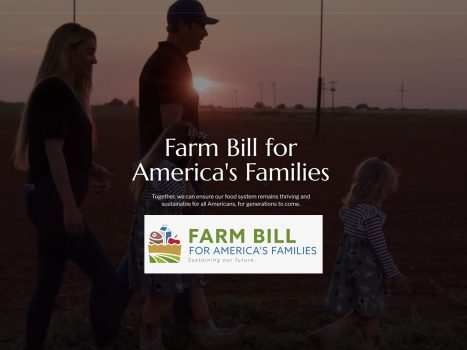A bipartisan group of U.S. Representatives made up of Zoe Lofgren (D-CA), Dan Newhouse (R-WA), Jim Costa (D-CA), Mike Simpson (R-ID), Jimmy Panetta (D-CA), David Valadao (R-CA), Salud Carbajal (D-CA), John Duarte (R-CA), Henry Cuellar (D-TX) and Jerrold Nadler (D-NY) moved in late June to reintroduce the Farm Workforce Modernization Act, H.R. 4319, “which creates a workforce solution for America’s agriculture industry, one of the most critical sectors of the national economy,” according to information released by Lofgren’s office.
The reintroduction of the existing bill, which passed the House with bipartisan support in both the 116th and 117th Congresses, updates the H-2A agricultural guest worker program “and is a compromise solution that provides needed stability for farms and farmworkers,” Lofgren’s release stated.
“In the past few years, we’ve seen labor shortages contribute to high food prices. If it wasn’t obvious before, the pandemic made clear that our country’s agricultural workforce rules are in dire need of reform,” Lofgren commented.
She added, “The men and women who work America’s farms feed the nation. The Farm Workforce Modernization Act stabilizes the workforce, which will protect the future of our farms and our food supply. It’s well-past time we get this legislation that serves the best interests of our country to the President’s desk.”
Rep. Dan Newhouse said, “The top concern for farmers and ranchers in Central Washington and across the nation is labor, and the problem is only getting worse. As a third-generation farmer, I know first-hand how challenging it is for the agriculture industry to hire and retain labor so we can continue to feed America and the world. The Farm Workforce Modernization Act is the solution to creating a secure, reliable agriculture labor program to provide certainty to our farmers and ranchers for a stable and legal workforce for years to come.”
Negotiated over eight months in 2019 with input from farmers, labor organizations, farmworker advocates and other ag stakeholders, the bill passed in December of that year to become the first ag labor reform legislation to pass the House since 1986. And since its passage, a bipartisan coalition of House members “has continually been working to move the bill through the legislative process,” the release said.
The release said that “farmers and ranchers across the United States are in desperate need of a high-quality, reliable workforce, farmworkers need a stable future, and the current H-2A guestworker program needs meaningful, bipartisan reform.”
To that end, Lofgren’s office said, the bill:
- Reforms the H-2A program to provide more flexibility for employers, while ensuring critical protections for workers.
- Establishes a program for agricultural workers in the United States to choose to earn legal status through continued agricultural employment and contribution to the U.S. agricultural economy.
- Focuses on modifications to make the program more responsive and user-friendly for employers and provides access to the program for industries with year-round labor needs.
Support for the reintroduction has come from multiple ag groups and fronts, including the United Farm Workers and Western Growers, and several members of the bipartisan group strongly urged the bill’s
“Farmers and farmworkers continue to face uncertainty due to our country’s broken and bureaucratic immigration system,” said Rep. Panetta. “By providing an earned path to legal status for those willing to continue working in agriculture as well as a streamlined H-2A visa process, we’ll strengthen our community and promote the enduring farm workforce we need to ensure our nation’s food security. I’m proud to once again stand with a bipartisan coalition to introduce a commonsense path forward with the Farm Workforce Modernization Act.”
“The current H-2A program’s limitation to seasonal employment leaves many industries without the stable workforce that is vital to our food supply chain,” Rep. Valadao said. “Food security is national security, and agricultural labor shortages threaten our ability to grow food for the nation. The Farm Workforce Modernization Act is a commonsense solution that ensures our farmers have access to a legal and reliable workforce and streamlines the process for the future flow of workers.”


